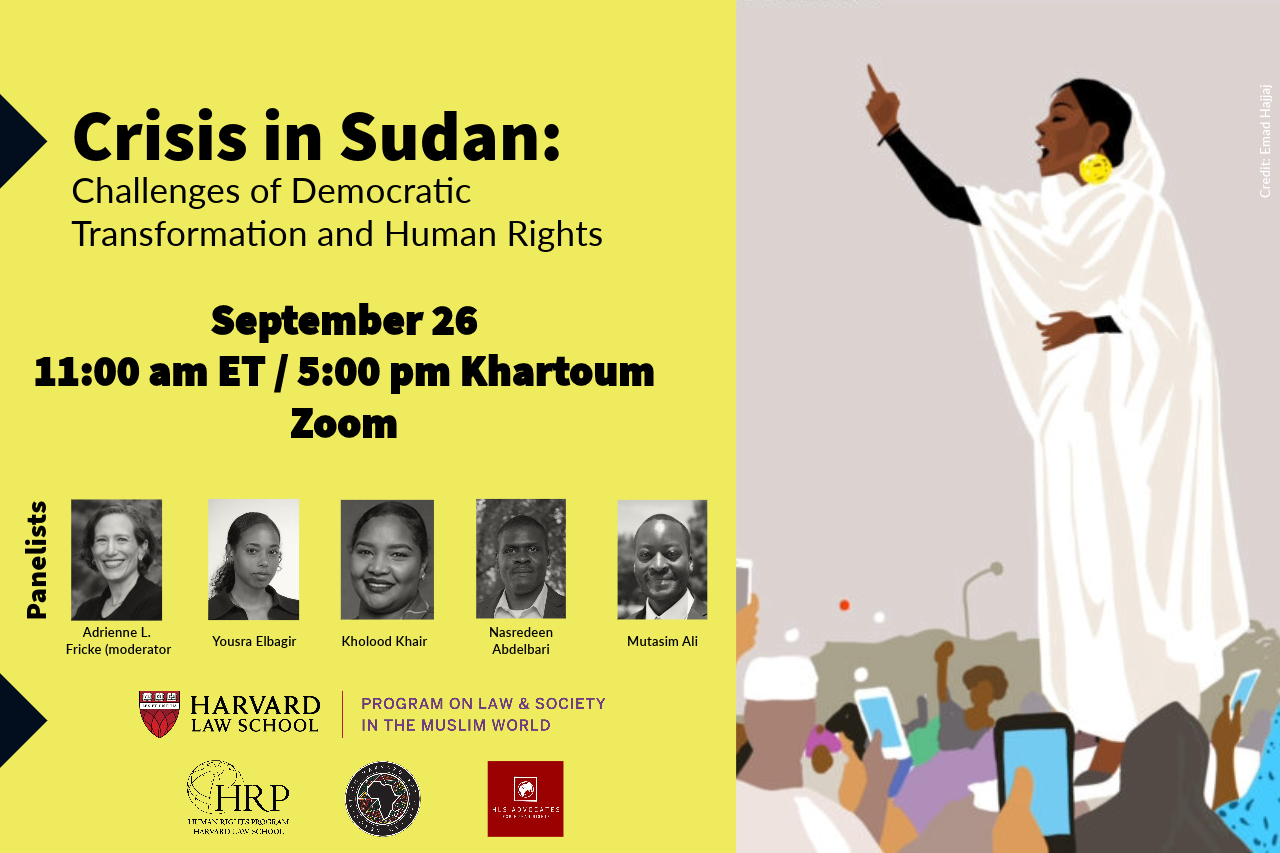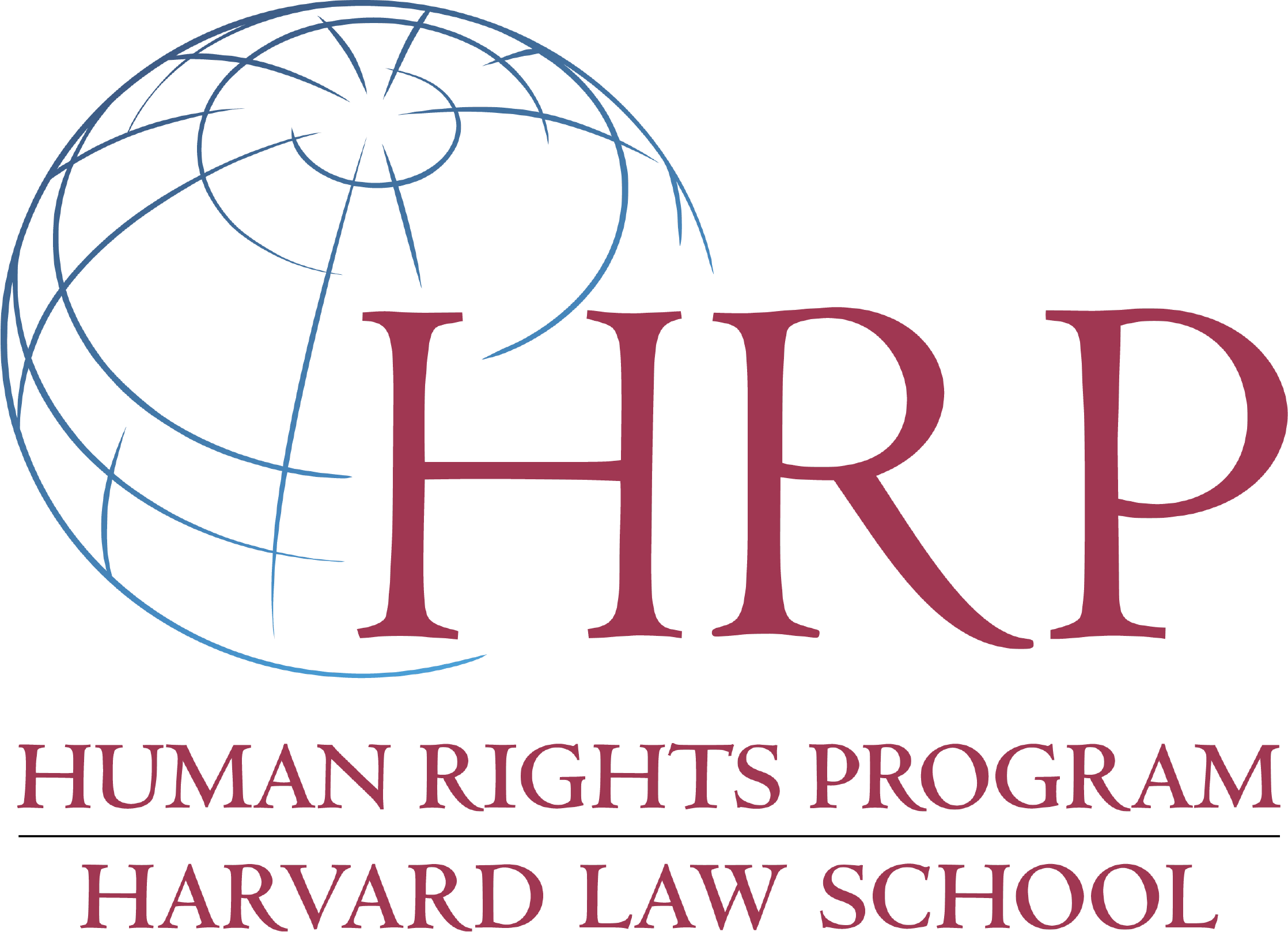
This event has passed. You can find a complete recording of the event below or on YouTube.
Join a panel of Sudanese experts for a discussion of current developments in Sudan’s recent conflict and challenges of democratic transformation and human rights.
In 2019, the Sudanese people deposed President Omar al Bashir thirty years after he took power in a military coup. The downfall of a regime accused of committing war crimes, crimes against humanity and genocide, the success of a grassroots pro-democracy movement, and the beginning of a democratic transition were all bright but short-lived moments in Sudan’s post-colonial history. On October 25, 2021, the military members of the transitional government staged a coup, arresting key civilian leaders and dissolving transitional institutions.
After much pressure from rounds of protests, the civilian and military stakeholders were days away from signing a political framework agreement to usher in a new transition to civilian democratic rule when fighting erupted on April 15, 2023. Although the belligerents, the Sudanese Armed Forces (SAF) and the Rapid Support Forces (RSF), had previously worked together to overthrow the Bashir regime in 2019, and then again to stage a military coup in 2021, they could not agree on a plan to unify forces and share resources within a civilian political transition. In addition to destabilizing the Horn Region, conflict has had tremendous human rights implications including the killing of thousands of civilians, the destruction of critical infrastructure including the looting of hospitals, the onset of a refugee crisis, and more recently a massacre in Darfur evoking an investigation by the ICC’s Office of the Prosecutor.
Panelist bios:
Adrienne L. Fricke (moderator) is a Fellow with the Middle East Initiative at Harvard Kennedy School and a consultant specializing in human rights and refugee-related issues in the Middle East and Africa. Fricke further holds positions as Senior Peace Fellow at the Public International Law & Policy Group, Consultant with Fricke Research Solutions, and Expert Consultant for Physicians for Human Rights. She is the author of the 2020 report “‘Chaos and Fire’: An Analysis of Sudan’s June 3, 2019 Khartoum Massacre” published by Physicians for Human Rights.
Nasredeen Abdulbari is a nonresident senior fellow with the N7 Initiative at the Atlantic Council’s Rafik Hariri Center and Middle East programs and was formerly Sudan’s minister of justice. Prior to his appointment as minister of justice in 2019, Abdulbari worked as a consultant for the American Bar Association Rule of Law Initiative, as a legal advisor to the Saudi Arabian Cultural Mission to the United States, and as a research consultant for the Center for Advanced Defense Studies in Washington, DC. From 2008-2009, Abdulbari was an HRP Satter Fellow working with the Sudan Social Development Organization.
Yousra Elbagir is Africa correspondent for Sky News, covering major events and stories from across the continent. She has reported on social, cultural and political movements worldwide. Most notably, the 2019 youth-led revolution in Sudan and the global reckoning of Black Lives Matter in Europe and South America in 2020. Before joining Sky News, Yousra was a foreign news reporter for Channel 4 News and international correspondent for Vice News Tonight on HBO, making documentary-style news films.
Kholood Khair is a Sudanese political analyst and the founding director of Confluence Advisory, a “think-and-do” tank based in Khartoum. She is also a radio broadcaster, hosting and co-producing a weekly radio program, Spotlight 249, that is Sudan’s first English-language political discussion and debate show aimed at Sudanese youth. Khair has over a decade of experience in research, aid programming and policy in Sudan and across the Horn of Africa.
Mutasim Ali is an SJD Candidate at American University Washington College of Law. His doctoral research focuses on Sudan’s quest for constitutional stability. Prior to joining the Washington College of Law SJD program, Mr. Ali served as a legal consultant at Project Expedite Justice, Civitas Maxima, and a legal advisor at the Raoul Wallenberg Center for Human Rights.
The event is organized by the Harvard Law School Program on Law and Society in the Muslim World and the Human Rights Program. It is co-sponsored by HLS Advocates for Human Rights and the Harvard African Law Association.
